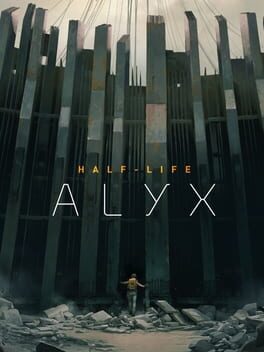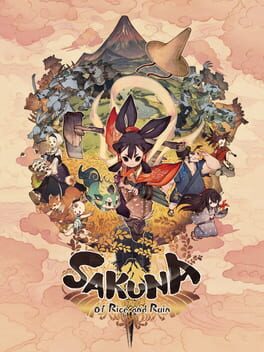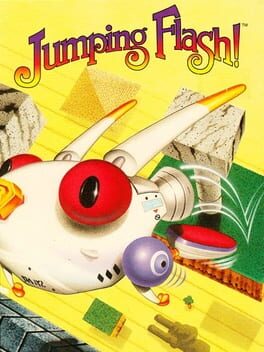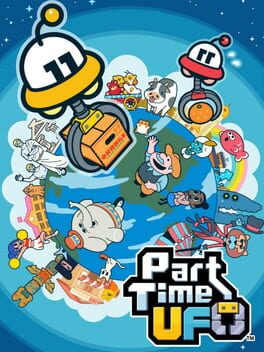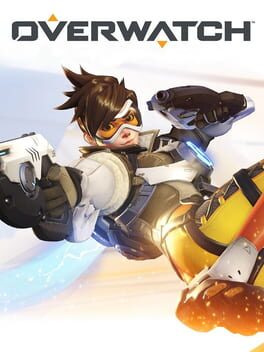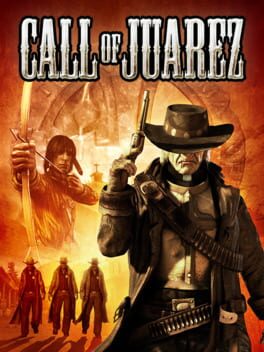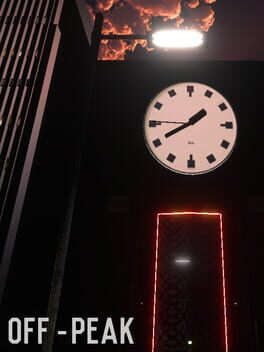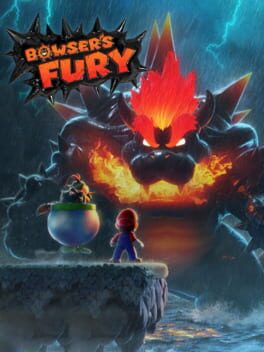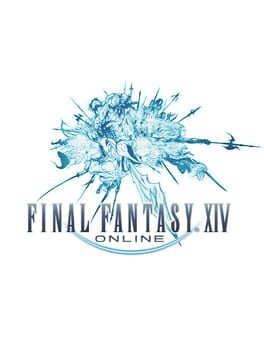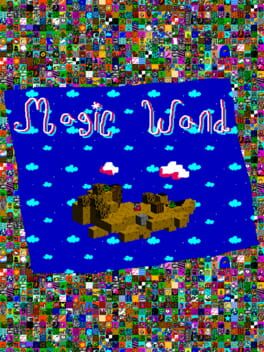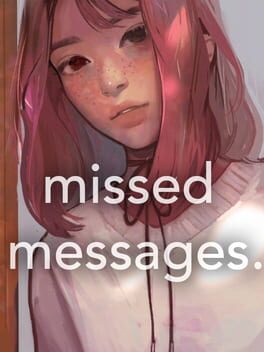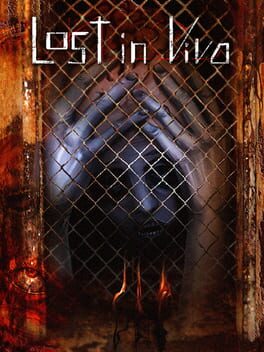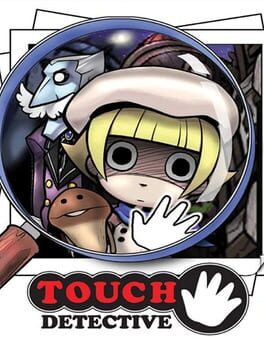BeachEpisode
2020
My experience with this game seems to have been very different from everyone else's, and I would definitely like to set up the disclaimer to disregard this write-up if you found yourself genuinely enjoying this game. My time with Alyx was coloured by the fact that VR makes me drastically motion sick after even a few moments of playing, I finally completed this game after about five months of short intermittent sessions. I ABSOLUTELY would not have even bothered if this didn't just so happen to be a mainline Half Life entry, a series I love.
Compliments to the chefs, the game is stunning looking. I'm sure they used every trick under the sun to get this game running smoothly while looking great on my ageing pc (which I'm sure plays a part in how VR affects me). The sheer level of mechanical detail, the variety in the pieces of graphic design illustrations throughout the city lending every area its own sense of lived-in plausability. Oo mama the posters and stuff around the zoo. Much of the stuff I love Half Life for is here and urbex is alive and well.
The problems for me really do arise around the fact that the act of playing the game was akin to strapping a microwave to my face and having my eyeballs burst like blueberries under the scorching tropical sun. I simply don't believe it's worth the strain, because the game itself is a fairly standard rail shooter affair. Once the fully-realised vr simulation euphoria disappeared I realised I was just walking from one gunfight to the next with alarmingly few tools to actually play with. I put up with this and even enjoyed it in Half Life 2, because my movement felt unrestricted. If Alyx is as good as VR games are at right now, I'm happy to just. Hibernate on the shit.
As a kid I always wanted to touch a Combine forcefield and this game let me carry out my dream, thamks valve
Compliments to the chefs, the game is stunning looking. I'm sure they used every trick under the sun to get this game running smoothly while looking great on my ageing pc (which I'm sure plays a part in how VR affects me). The sheer level of mechanical detail, the variety in the pieces of graphic design illustrations throughout the city lending every area its own sense of lived-in plausability. Oo mama the posters and stuff around the zoo. Much of the stuff I love Half Life for is here and urbex is alive and well.
The problems for me really do arise around the fact that the act of playing the game was akin to strapping a microwave to my face and having my eyeballs burst like blueberries under the scorching tropical sun. I simply don't believe it's worth the strain, because the game itself is a fairly standard rail shooter affair. Once the fully-realised vr simulation euphoria disappeared I realised I was just walking from one gunfight to the next with alarmingly few tools to actually play with. I put up with this and even enjoyed it in Half Life 2, because my movement felt unrestricted. If Alyx is as good as VR games are at right now, I'm happy to just. Hibernate on the shit.
As a kid I always wanted to touch a Combine forcefield and this game let me carry out my dream, thamks valve
Finding the Gods in the little things
Farming games have bored me to tears forever, and I could never put my finger on exactly why, until I played Sakuna. They never feel like I'm actually making anything for anyone, merely automating infinitely expanding factories that operate a hidden spreadsheet which assures me I'm efficiently pumping out a million different kinds of produce you never have the opportunity to see. A distant bird's eye view on an industrial empire devoid of anything besides numbers and percentages. At least it fills up a hunger bar, right?
Sakuna, on the other hand, has a laser-focused level of attention purely on rice farming, right down to the player needing to manually carry out quite literally every single step of the process by hand. Tracing the production cycle from sorting the seeds - tilling the land - planting the seedlings evenly - fertilising and maintaining a desired water level balance - reaping then drying the stalks on a rack - threshing and hulling for the type of rice desired - then preparing a meal to watch your beloved newfound family enjoy. It's tedious and arduous toil but completely thankful and full to the brim with charm, and I fucking love it more than anything. Quite literally made me more appreciative of a foodstuff I take for granted. Filled with sweet, reverent moments I found genuinely moving and will stick with me for a long time. Watching this humble rice paddy thrive was more uplifting than I have the words for.
You can miss me with the combat, which is my main sticking point because you spend so much time doing it. Labourious and dull even after the movelist opens up towards the end of the game. I'm thoroughly unconvinced the drudgery exists to further the game's themes of toil and spoil because it's just... so standard of a mid-tier Japanese game production.
Probably my biggest case of "a sequel could make this perfect", and the game's apparent success at least in Japan has me genuinely hopeful. A few minor deviations and we have a Strand game on our hands. Hear me out.,
Farming games have bored me to tears forever, and I could never put my finger on exactly why, until I played Sakuna. They never feel like I'm actually making anything for anyone, merely automating infinitely expanding factories that operate a hidden spreadsheet which assures me I'm efficiently pumping out a million different kinds of produce you never have the opportunity to see. A distant bird's eye view on an industrial empire devoid of anything besides numbers and percentages. At least it fills up a hunger bar, right?
Sakuna, on the other hand, has a laser-focused level of attention purely on rice farming, right down to the player needing to manually carry out quite literally every single step of the process by hand. Tracing the production cycle from sorting the seeds - tilling the land - planting the seedlings evenly - fertilising and maintaining a desired water level balance - reaping then drying the stalks on a rack - threshing and hulling for the type of rice desired - then preparing a meal to watch your beloved newfound family enjoy. It's tedious and arduous toil but completely thankful and full to the brim with charm, and I fucking love it more than anything. Quite literally made me more appreciative of a foodstuff I take for granted. Filled with sweet, reverent moments I found genuinely moving and will stick with me for a long time. Watching this humble rice paddy thrive was more uplifting than I have the words for.
You can miss me with the combat, which is my main sticking point because you spend so much time doing it. Labourious and dull even after the movelist opens up towards the end of the game. I'm thoroughly unconvinced the drudgery exists to further the game's themes of toil and spoil because it's just... so standard of a mid-tier Japanese game production.
Probably my biggest case of "a sequel could make this perfect", and the game's apparent success at least in Japan has me genuinely hopeful. A few minor deviations and we have a Strand game on our hands. Hear me out.,
1995
2017
2016
Hard to completely despise this despicable game because it's been polished to an absolute mirror shine through a lifetime of quality over quantity updates. Sadly, these updates were hyper-focused towards catering to the Elite Gamer demographic and far less towards the people who play games to have fun, and you're lying if you think there's no difference between the two. I went into this game at release hoping it would shape up to fit the hole in my heart left by Team Fortress 2, but Overwatch's walled garden content approach means the sheer user-created variety will never ever coalesce.
I'm not saying I'd love this game if it lets people make surf maps or play on servers with insane plugins - but I'd PROBABLY love it, if it even as much as let me set my spray to an animated gif of Konata Izumi.
My wildest hopes and dreams for Overwatch 2 begin and end at hoping they hired a writer this time. Overwatch trailers are seriously written like when you just press the middle suggested word on your phone keyboard. "We are heroes and we must protect this world because it is just the right thing to do and heroes must come together to do what is right and". I literally need to stop myself before I start talking about how good the TF2 comics were.
I'm not saying I'd love this game if it lets people make surf maps or play on servers with insane plugins - but I'd PROBABLY love it, if it even as much as let me set my spray to an animated gif of Konata Izumi.
My wildest hopes and dreams for Overwatch 2 begin and end at hoping they hired a writer this time. Overwatch trailers are seriously written like when you just press the middle suggested word on your phone keyboard. "We are heroes and we must protect this world because it is just the right thing to do and heroes must come together to do what is right and". I literally need to stop myself before I start talking about how good the TF2 comics were.
2006
The Elder Cowboys: Oblivion
Not a fantastic shooter by any stretch of the imagination, but it very clearly feels like a passion project of sorts. Inspired by the physics and interactivity of Half Life 2, and spinning them into an explorative series of levels introducing new mechanics with semi-regularity. One of those early 7th console generation games that feel eager to stress test the new hardware capabilities in as clumsy and charming a way as they could. Worth playing just to watch the player's cast shadow while swinging from tree branches with a whip.
Not a fantastic shooter by any stretch of the imagination, but it very clearly feels like a passion project of sorts. Inspired by the physics and interactivity of Half Life 2, and spinning them into an explorative series of levels introducing new mechanics with semi-regularity. One of those early 7th console generation games that feel eager to stress test the new hardware capabilities in as clumsy and charming a way as they could. Worth playing just to watch the player's cast shadow while swinging from tree branches with a whip.
2015
Everything about this strikes me as the type of game that Mr Brainwash would make - unceremoniously smashing together a 3D collage of ready-made graphics with the sole intent of leaving a grotesque impact under the presumption there's a profoundness to it all. This game looks like a Second Life map, hideously warped prefab character models dancing with bought emotes and with bizarre decor strewn around in a way that only makes sense in the designer's stormcloud of a mind. Honest contender for most botched implementation of sun shafts I've ever seen. Off-Peak is probably supposed to be funny in a beguiling sort of way, but the languid dialogue and hacked together assets just hit me as dull and uncreative. The soundtrack is a bop though.
2021
Having this tacked on to my favourite Mario game is doing no disservice whatsoever, but I can't help but want to like it more. The central mechanic being Bowser's cyclic attacks on a seamless open world feels like such an incredible framework and lends the game a feeling unlike any other Mario game up to this point. Still, I found myself sinking into repetition as each zone tended to share challenges (blue coins, Dark Luigi, locked cage etc.) and fail to be particularly challenging explorations of them.
It was probably the first time I've ever attacked Bowser, and a fucking health bar appeared over his head???? Wild.
I feel this game would be better served as an expansion to Odyssey instead of 3D World if only because the limited move list seems to only work Okay for an open-world game. They were absolutely perfect for 3D World's level design, but the compromise for Bowser's Fury was to add the ability to hoard powerups and switch them on the fly, where something more momentum-based would have probably worked a lot better. It both eliminates a lot of challenge and makes the experience feel a little slapdash, that I'm mainly succeeding because of my gear rather than my own dexterity.
Still, this is quite fun! Cool as hell to see Nintendo pull a little bit of a Majora's Mask again by remixing old assets into a weird new direction n stuff.
It was probably the first time I've ever attacked Bowser, and a fucking health bar appeared over his head???? Wild.
I feel this game would be better served as an expansion to Odyssey instead of 3D World if only because the limited move list seems to only work Okay for an open-world game. They were absolutely perfect for 3D World's level design, but the compromise for Bowser's Fury was to add the ability to hoard powerups and switch them on the fly, where something more momentum-based would have probably worked a lot better. It both eliminates a lot of challenge and makes the experience feel a little slapdash, that I'm mainly succeeding because of my gear rather than my own dexterity.
Still, this is quite fun! Cool as hell to see Nintendo pull a little bit of a Majora's Mask again by remixing old assets into a weird new direction n stuff.
This review will be mostly partial to the Level 50 (2.X) content that existed before the first Heavensward expansion dropped.
I completed Shadowbringers on release, and went into FFXIV hibernation until the Endwalker trailer got a few friends interested in giving the game a whirl. Eagerly jumped at the opportunity to make a new character on a preferred server, if only to see what impact the long-coming quality of life alterations had on the base game content.
As long as they pick the 'preferred server', newcomers receive a hefty exp bonus that I'd say nearly destroys any need even to do an unimportant sidequest or levelling duty finder. By the time the credits rolled, I already had two classes at level 50, which slaps hard. Considerable alterations were more recently made to the overall length of the 2.X quests - removing something like 18% of main story quests, and heavily abbreviating the ones that remain and adding the ability to use flying mounts in the old zones.
This all sounds really boring and granular, but honestly, it goes a long way into shortening what I'd essentially call the absolute worst content the game has to offer.
In general, it's not until you hit level 50 for your class' toolset will finally feel something close to 'fullness', allowing the player nigh-constant engagement with skill rotations and cooldowns.
It's also not until the post-credits content where the story gets promoted above... boilerplate? Characters become more clearly defined, and the story takes a turn into a fairly convincing political drama. That isn't to say admirable themes of growing into a legend while bringing the world together to heal the wounds caused by the calamity aren't present from the start, but I'm getting ahead of myself.
The base game is A Realm Unseasoned, but I find it all worth the effort. Not only is the writing fun in a quaint enough way, but the foundation for great things to come has been made a whole lot more painless to trudge through. I don't envy the FFXIV team's task of adding ever more floors to the monolithic retrofitted nightmareskyscraper that is the game's life structure. The first content you see is the oldest and most naive, and you just have to be patient enough to watch the game grow into something spectacular as you progress through the MSQ. One thing I find particularly impressive is how well the game eases players in with evenly spaced tutorials and tools you have to play to unlock. Far too many live-service games in rotation nowadays do a terrible job at teaching the player anything in a way that isn't intensely overwhelming.
I completed Shadowbringers on release, and went into FFXIV hibernation until the Endwalker trailer got a few friends interested in giving the game a whirl. Eagerly jumped at the opportunity to make a new character on a preferred server, if only to see what impact the long-coming quality of life alterations had on the base game content.
As long as they pick the 'preferred server', newcomers receive a hefty exp bonus that I'd say nearly destroys any need even to do an unimportant sidequest or levelling duty finder. By the time the credits rolled, I already had two classes at level 50, which slaps hard. Considerable alterations were more recently made to the overall length of the 2.X quests - removing something like 18% of main story quests, and heavily abbreviating the ones that remain and adding the ability to use flying mounts in the old zones.
This all sounds really boring and granular, but honestly, it goes a long way into shortening what I'd essentially call the absolute worst content the game has to offer.
In general, it's not until you hit level 50 for your class' toolset will finally feel something close to 'fullness', allowing the player nigh-constant engagement with skill rotations and cooldowns.
It's also not until the post-credits content where the story gets promoted above... boilerplate? Characters become more clearly defined, and the story takes a turn into a fairly convincing political drama. That isn't to say admirable themes of growing into a legend while bringing the world together to heal the wounds caused by the calamity aren't present from the start, but I'm getting ahead of myself.
The base game is A Realm Unseasoned, but I find it all worth the effort. Not only is the writing fun in a quaint enough way, but the foundation for great things to come has been made a whole lot more painless to trudge through. I don't envy the FFXIV team's task of adding ever more floors to the monolithic retrofitted nightmareskyscraper that is the game's life structure. The first content you see is the oldest and most naive, and you just have to be patient enough to watch the game grow into something spectacular as you progress through the MSQ. One thing I find particularly impressive is how well the game eases players in with evenly spaced tutorials and tools you have to play to unlock. Far too many live-service games in rotation nowadays do a terrible job at teaching the player anything in a way that isn't intensely overwhelming.
2016
2019
Marred by my very personal distaste of its handling of the subject matter and exacerbated by my slight gripes with this style of dialogue. I felt emotionally manipulated into fixing my "mistake" on the second attempt.
At the very least, I couldn't find an ill-meaning bone in Missed Messages' body, leaving its brief runtime to feel a little too out of its own depth to competently navigate its story and offer anything besides momentary catharsis. This is the type of thing that'll hit different people in wildly different ways - I can't say it accomplished what it clearly set out to do for me, but it failed in style and with heart.
At the very least, I couldn't find an ill-meaning bone in Missed Messages' body, leaving its brief runtime to feel a little too out of its own depth to competently navigate its story and offer anything besides momentary catharsis. This is the type of thing that'll hit different people in wildly different ways - I can't say it accomplished what it clearly set out to do for me, but it failed in style and with heart.
2018
One of the very many games advertised to me as "having no jumpscares" only for it to have jumpscares. Either my definition of the word is very different from other people's, or I'm easy to own.
Probably the best of these indie horrors with a vague and confused "retro-inspired" aesthetic I've ever played, which doesn't put it very high on my actual quality barometer. It essentially has every single idea you've ever read in an ideas guy greentext horror game thread. I struggle to lend any points for originality (the elevator was cool!!). Still, it's just a lot of nice ideas bundled together into a neat package that is suspiciously just as long as it takes an average Youtube audience to drop off a Let's Play. Hmmmmmmm????? Probably a coincidence.
In the interest of fairness, I believe to know the appeal here. This game's success makes total sense; it's the genre in a shot glass, a Now That's What I Call Horror compilation album with all the bang and none of the fuss. But the devil is in the details. After learning that the developer of this game previously made Spooky's Jumpscare Mansion, it all kinda made sense. "No new ideas under the sun" etc., but horror only works for me when it is introducing ideas that feel in some way fresh, with implications that allow them to stew in my subconscious during/after the runtime or for themes to be navigated in a way that evokes something in me.
Lost In Vivo succeeds at what it tries to do, which is take elements from Silent Hill and SCP Foundation, among many others, and allow the player to fight through the layers of horror hell. Enemies with insane designs screaming towards you as you blast them with your shotgun, defiantly keeping your cool under the setpieces and crushing atmosphere that strings the game together like a roving epic. There's an "Abandon all hope ye who enter" graffiti tag near the start of the game, so I mean yea. I find it all a little too grating, obvious and cheap, but hey.
Probably the best of these indie horrors with a vague and confused "retro-inspired" aesthetic I've ever played, which doesn't put it very high on my actual quality barometer. It essentially has every single idea you've ever read in an ideas guy greentext horror game thread. I struggle to lend any points for originality (the elevator was cool!!). Still, it's just a lot of nice ideas bundled together into a neat package that is suspiciously just as long as it takes an average Youtube audience to drop off a Let's Play. Hmmmmmmm????? Probably a coincidence.
In the interest of fairness, I believe to know the appeal here. This game's success makes total sense; it's the genre in a shot glass, a Now That's What I Call Horror compilation album with all the bang and none of the fuss. But the devil is in the details. After learning that the developer of this game previously made Spooky's Jumpscare Mansion, it all kinda made sense. "No new ideas under the sun" etc., but horror only works for me when it is introducing ideas that feel in some way fresh, with implications that allow them to stew in my subconscious during/after the runtime or for themes to be navigated in a way that evokes something in me.
Lost In Vivo succeeds at what it tries to do, which is take elements from Silent Hill and SCP Foundation, among many others, and allow the player to fight through the layers of horror hell. Enemies with insane designs screaming towards you as you blast them with your shotgun, defiantly keeping your cool under the setpieces and crushing atmosphere that strings the game together like a roving epic. There's an "Abandon all hope ye who enter" graffiti tag near the start of the game, so I mean yea. I find it all a little too grating, obvious and cheap, but hey.
I was wondering why I couldn't mine from a mineral deposit in FFXI. It turns out I had to open an item trade with the mining spot and offer my pickaxe.
This game was made by and for psychopaths.
The first day of my subscription was spent trying to log in to the DRM, PlayOnline, something that felt held together by spit and a prayer. Already feeling pressed for time, I started looking into guides, FAQs and walkthroughs to immediately realise that they are filled with conflicting information. What ensued was 29 days of folkloric adventuring, going off years-old rumours and hearsay found among mostly defunct Wikis. A guide would literally say "- Once you meet unknown requirements" and I'd have to crack my knuckles and experiment in any way I could with the absolute wishing well that forms FFXI's design. Unclear signposting, a nightmarish control scheme, and unresponsive NPCs - but what really drags the experience down is the lengthy grind, which not even late-expansion introduced multipliers and buffs seem to alleviate much.
In a way, I almost admire how every single element of this game feels as tuned as possible to be as transgressively rude and dull as possible. Still, I gave it a shot after two decades-worth of quality of life alterations were added to the title. I can't say it really felt that way as a newcomer, but there were entire systems I found myself relying on, such as the NPC summoning Trust mechanic and repeatable quests that I was assured were late additions.
The thing that kept me strung along really was the story elements; they're so fantastic. Great dialogue and large scale narrative events with meta elements that recontextualise entire swathes of the game in genuinely impressive ways. And almost all of them are things that the guides neglect to mention; you stumble upon genuinely stellar moments while trying to do your bread and butter.
I'll probably never re-subscribe, it was a fascinating month of archaic-yet-ingenious design. On the one hand, thank God I'll never play anything like this again, but on the other, ah man I kinda miss it already. Hell is real, and you can pay £8 a month to experience it.
This game was made by and for psychopaths.
The first day of my subscription was spent trying to log in to the DRM, PlayOnline, something that felt held together by spit and a prayer. Already feeling pressed for time, I started looking into guides, FAQs and walkthroughs to immediately realise that they are filled with conflicting information. What ensued was 29 days of folkloric adventuring, going off years-old rumours and hearsay found among mostly defunct Wikis. A guide would literally say "- Once you meet unknown requirements" and I'd have to crack my knuckles and experiment in any way I could with the absolute wishing well that forms FFXI's design. Unclear signposting, a nightmarish control scheme, and unresponsive NPCs - but what really drags the experience down is the lengthy grind, which not even late-expansion introduced multipliers and buffs seem to alleviate much.
In a way, I almost admire how every single element of this game feels as tuned as possible to be as transgressively rude and dull as possible. Still, I gave it a shot after two decades-worth of quality of life alterations were added to the title. I can't say it really felt that way as a newcomer, but there were entire systems I found myself relying on, such as the NPC summoning Trust mechanic and repeatable quests that I was assured were late additions.
The thing that kept me strung along really was the story elements; they're so fantastic. Great dialogue and large scale narrative events with meta elements that recontextualise entire swathes of the game in genuinely impressive ways. And almost all of them are things that the guides neglect to mention; you stumble upon genuinely stellar moments while trying to do your bread and butter.
I'll probably never re-subscribe, it was a fascinating month of archaic-yet-ingenious design. On the one hand, thank God I'll never play anything like this again, but on the other, ah man I kinda miss it already. Hell is real, and you can pay £8 a month to experience it.
2006
Aye, makes sense why I'd never heard of this series before. I love the cast and the artstyle that informs their incredible designs but.... that's about it. Basic point and click adventure game with shallow puzzles and obtuse solutions. I'm normally so weak to games with an element of charm that overrides any complaint I'd have about the core gameplay, but not this time. It's just too dull and frustrating.
Mackenzie is a character I'll stock up rent free in my head until the end of my days, but she can leave the game she's from behind.
Mackenzie is a character I'll stock up rent free in my head until the end of my days, but she can leave the game she's from behind.
